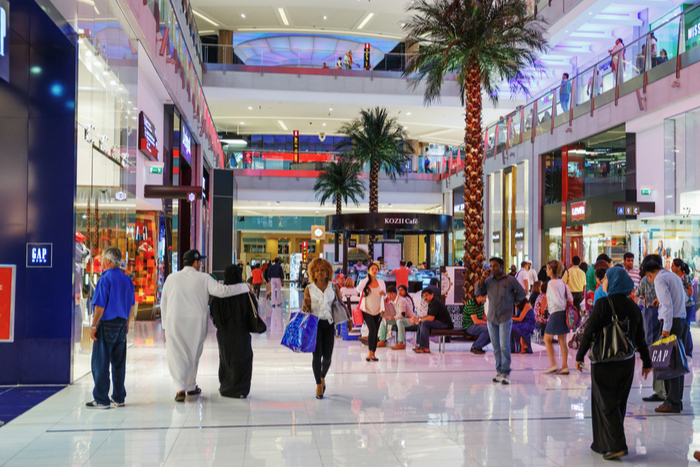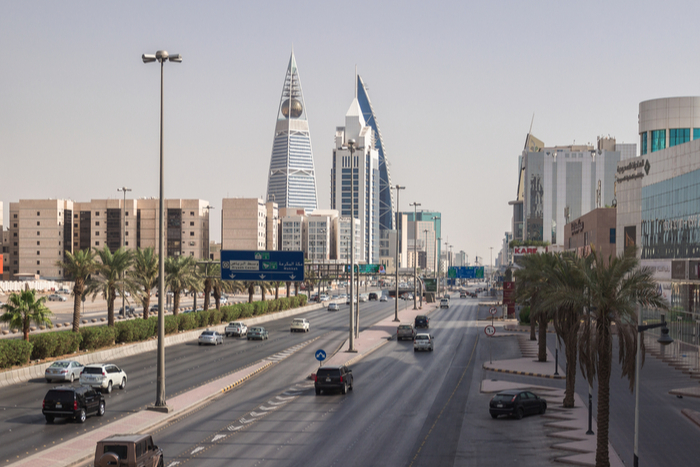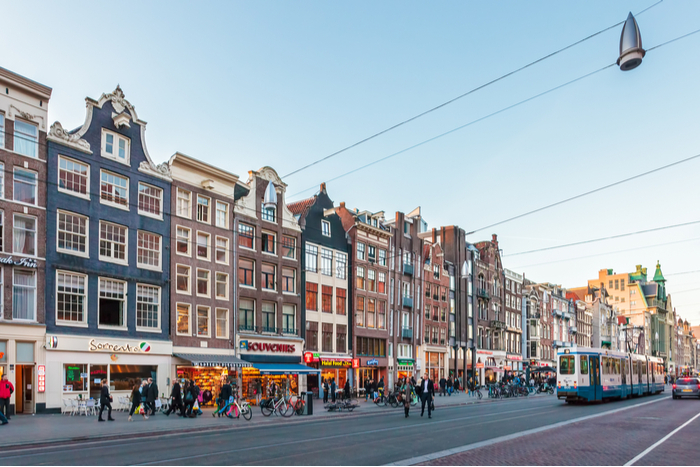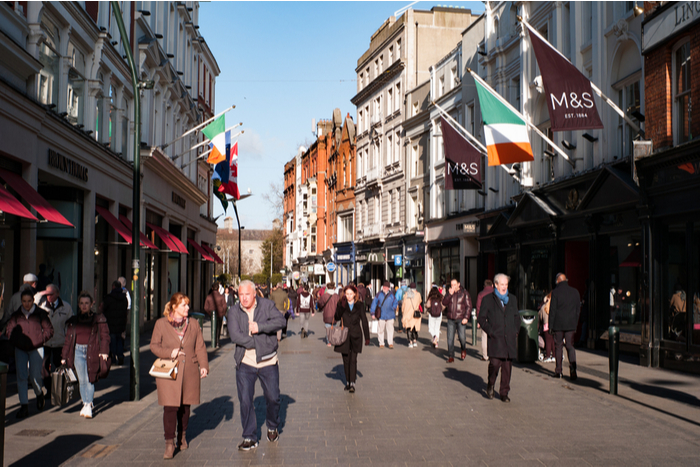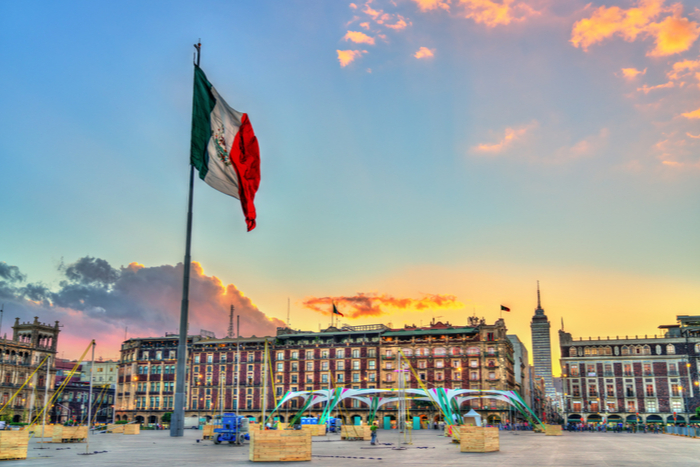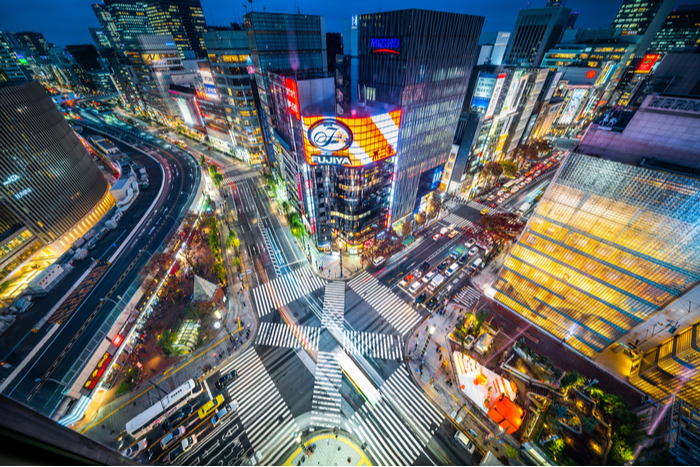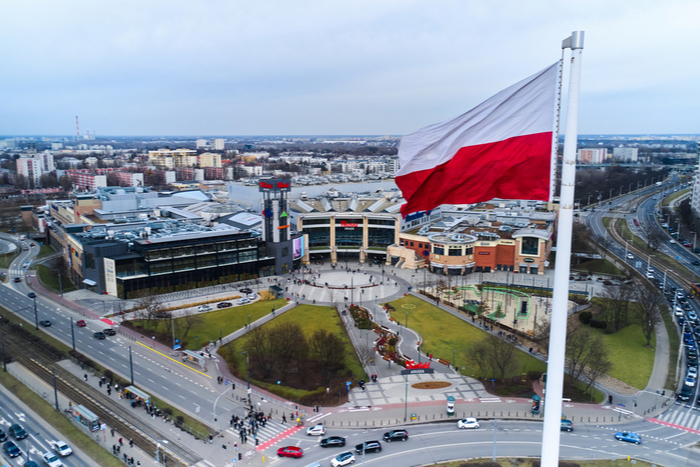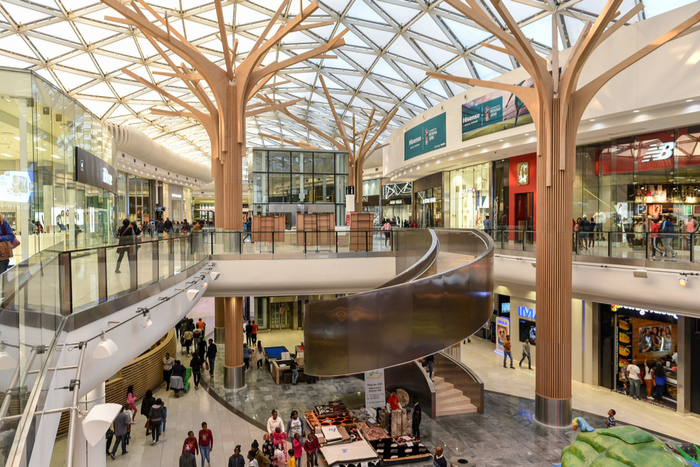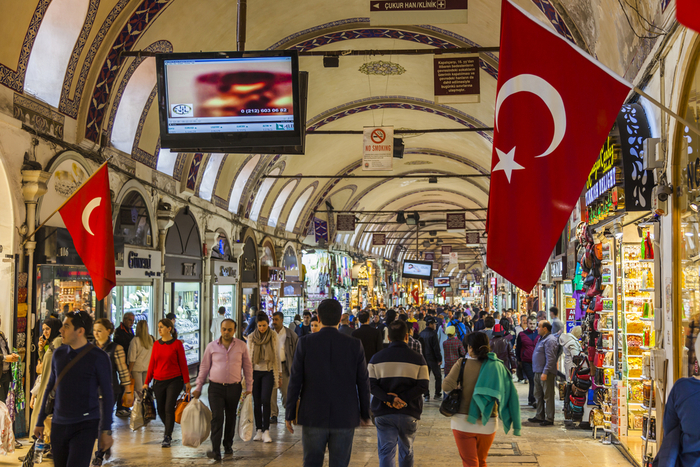The United Arab Emirates is a federation of seven emirates, namely Dubai, Abu Dhabi, Sharjah, Fujairah, Ras Al-Khaimah, Umm Al-Quwain and Ajman, and each have their own rules and regulations.
The UAE’s retail market was valued at $55 billion (£41 billion) in 2019, according to market reports site Report Linker.
Prior to the Covid-19 pandemic, the Gulf state was witnessing rising per capita income, growing tourism industry, an increasing population of foreign workers, and a rising number of development projects.

Expo 2020, the 173-day international exhibition, was expected to fuel the UAE’s growth. However, it has now been delayed until 2021 due to the Covid-19 pandemic – marking the first time ever that the Expo has been postponed since its launch in 1851.
Despite the pandemic, UAE’s retail market is forecast to grow by 0.4 per cent this year, becoming the sixth best-performing market in 2020. Spend growth is also forecast to remain in positive territory, significantly helped by its short lockdown period of just two weeks, according to a report by GlobalData.
Considering that lockdown restrictions for non-essential retailers were quickly lifted in the UAE, shopping centres have started to reopen with many introducing measures that could be used as a blueprint for other retailers in the world.
“Although Covid-19 is set to wipe AED 13.5 billion (£2.7 billion) off the original 2020 forecast growth of 5.8 per cent in the UAE, its wealthy population and brief lockdown period will mean the market holds up better than many of its MENA neighbours, including Turkey and Israel,” GlobalData retail analyst Emily Salter said.

“Additionally, the UAE will experience a faster recovery than most Western economies due to consumers’ greater propensity to spend on luxury items, although falling oil prices may have a longer term impact on domestic consumer wealth.”
The major players operating in the UAE retail market are Lulu Group, Majid Al Futtaim, Landmark Group, Al Azizia Panda United, Azadea, EMKE Group, Fathima Group of Companies, Carrefour, Spinneys Dubai, Al Maya, among others.
UAE’s retail market is segmented based on By Type, By Type of Market, By Distribution Channel and By Region. The market is also segmented into food retail and non-food retail.
Food retail holds the largest share and is expected to maintain its lead in future too. Over the last few years, the UAE has seen strong growth in value-added segments such as ready-to-cook food items.

Based on type of market, the market is then categorised into organised and unorganised segments.
With domestic as well as international players actively increasing their presence by opening up new stores in the UAE, the organised retail segment continues to dominate its retail market.
Based on distribution channel, the market is further split into supermarket/hypermarket, exclusive stores, specialty stores, department stores, general merchandise stores and online.
The supermarkets/hypermarkets segment dominates the UAE’s retail market, followed by exclusive stores, specialty stores and department stores.
“Supermarket chains such as Carrefour – by Majid Al Futtaim, and Spinney’s were able to operate within the lockdown period and also rose to the challenge of the rise in customers visiting their stores and purchasing through their ecommerce platforms,” said Grant Gibson, managing director of Dubai-based retail recruitment and consultancy firm Quest Search and Selection.
“All markets have been heavily affected by the Covid-19 pandemic and retail was one of the most heavily affected due to the restrictions and lockdowns reducing footfall to virtually zero during the months of March, April and May.”

Retail portfolio franchise Liwa chief executive Mark Tesseyman said retail remains a “core component” of the UAE’s identity – especially in its economy.
“The sector contributes just over one-quarter of the emirate’s GDP, and this is forecasted to continue,” he said.
“The growth of ecommerce is being actively supported by the government.
“However, optimism surrounding the influx of new supply is tempered by slower economic growth brought on by lower oil prices and the pandemic.”
He added that while the UAE is optimistic about a quick economic recovery, it is still experiencing declining income and as a result, many residents are cutting back on their spending in all categories, except household essentials.
“Consumers are now more price-conscious and are increasingly looking for ways to save,” Tesseyman said.
“However, they becoming more confident and there is a steady increase of people going back to day-to-day out-of-home activities due to the government lifting restrictions to return to regular activities.”

CBRE’s UAE Market Outlook H1 2020 report, which looked at Abu Dhabi and Dubai, found that the regions were faced with increased supply levels, coupled with the growth of ecommerce and the impact of Covid-19 – making the market for bricks-and-mortar more competitive.
CBRE also predicted in the half-yearly report that spending within the retail sector is likely to flow more through digital channels as the adoption of ecommerce accelerates.
Tesseyman said that a key difference between the UK and UAE consumer is the adoption of ecommerce.
“Already a growing global trend, but one the UAE has been somewhat slow in adopting, the Covid-19 crisis has propelled online retail forward by many years,” he explained.
“However, unlike markets such as the UK, the biggest challenge often facing retailers is finding delivery solutions in a market that was not prepared for such a sudden surge in demand.”
“Covid-19 is set to wipe £2.7bn off the original 2020 forecast growth of 5.8%”
Meanwhile, Gibson said the UAE’s retail market has started to make significant strides coming out of the major effects of the pandemic.
“Over the past three months, we have seen the stores reopening, albeit with strict safety and distancing measures in place to protect customers and staff visiting the stores,” he told Retail Gazette.
“What has been really encouraging is that with the stores reopening and with customers keen to get out of the house and into the stores and malls the performance has not only returned to normal, but there has been a spike in revenue across the major retailers.”
According to Tesseyman, the UAE is backed by a high number of expatriate population and is one of the preferred destinations for global retail players in the Middle Eastern countries.
Gibson agreed. He said the UAE’s retail market was heavily influenced by the large population of foreigners who reside in the country. He added that the luxury fashion and jewellery market was a major attraction for UAE nationals, and that they attract many of the high net worth individuals from all over the country into flagships stores.
Tesseyman said luxury retailers usually trade well in the UAE thanks to its wealthy nationals, but since the early stages of the pandemic, the luxury sector has been highly attuned to the spread of Covid-19, which could have a “devastating” impact on the industry.
“The luxury landscape felt the initial rumblings of the storm to come when Covid-19 hit China, a country whose population made up 90 per cent of the global market growth for the luxury sector in 2019,” he said.
“When the virus hit Italy, where many brands have key suppliers and are headquartered, they faced the further challenge of operating as and where possible amid a national lockdown.”
As usual, if international retailers were looking to launch in a foreign country, investors need to consider a range of commercial issues that influence the decision of setting up in that country.
“Entering the retail market of the UAE is a very exciting proposition for any business”
The UAE happens to be an attractive hub for investors and global retailers, mainly because it has one of the most liberal trade regimes in the Gulf region. It is focused on economic diversification in trade, logistics, banking, tourism, real estate and manufacturing, has a well-established infrastructure, strong banking system, and a stable political system.
Gibson explained that international retailers should be aware of the importance of location for their stores.
“Dubai and Abu Dhabi are both very dynamic, metropolitan cities,” he said.
“However, the other areas of the UAE are more remote and don’t have the large population of avid consumers for western brands.
“So, entering the retail market of the UAE is a very exciting proposition for any business, but the launch of the brand should be carefully through out to raise awareness with exceptional brand activation events and campaigns and should tie together the location of the flagship store being in a place that will attract a wide variety of customers.
“This does come with higher costs (especially considering the rental costs of the retail outlets), but potentially very exciting returns on investment.
“Many brands tend to partner with large family businesses in the UAE to enable them to reach their full potential and to pull upon the resources of an established business, with in-country networks and full understanding of trading compliance.
“The biggest mistakes that retailers make when entering the UAE market is trying to move things too quickly without doing their research and diligence on the retail market, the right locations to launch and the right in-country partners.
“Retailers should also be thinking about their ecommerce strategy and if they should create ecommerce for each of their brands individually or to set up a marketplace ecommerce platform for all of their brands.
“Alternatively, a retailer can partner with one of the bigger ecommerce brands that operate in the region and look at the consumer trends and performance of the brand before taking larger decisions to move into the country.”
Click here to sign up to Retail Gazette‘s free daily email newsletter

